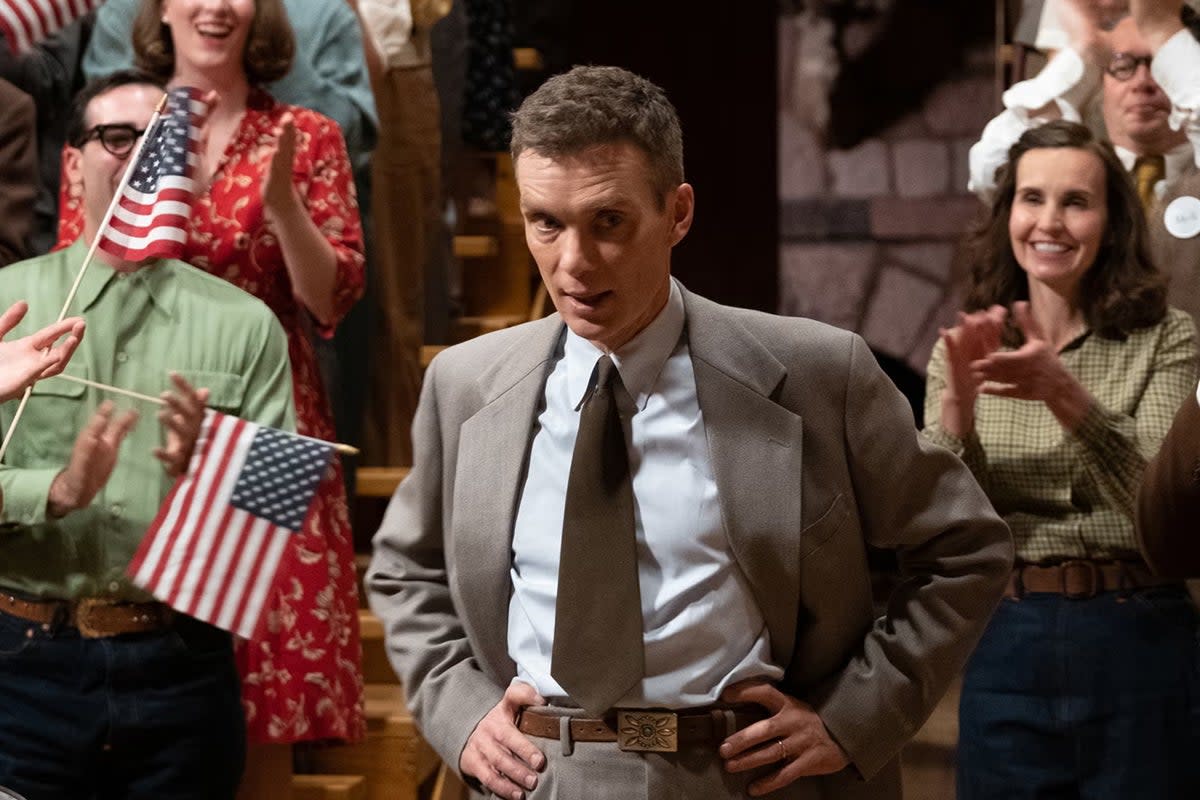Why Oppenheimer was a deserving winner of the Oscar for Best Picture

It was all Oppenheimer’s to lose. Over the past few months, the race for the Academy Award for Best Picture went from a crowded field to a seemingly foregone conclusion. Following wins at the Baftas, Golden Globes and Critics Choice awards, Christopher Nolan’s three-hour biopic had all the momentum: Cillian Murphy was set to take home Best Actor, for his haunted thousand-yard-stare of a performance as nuclear bomb mastermind J Robert Oppenheimer, while Nolan was a runaway favourite for Best Director. Sure enough, it won seven Oscars in total, including Best Picture, Best Actor and Director.
There’s much to admire about Oppenheimer. A structurally complicated work, the film flits between three timelines: Oppenheimer’s early life and the development of the atom bomb; a 1954 security hearing in which Oppenheimer gets a calamitous grilling; and the 1959 US Senate confirmation hearing of oily politician Lewis Strauss (Robert Downey Jr). There’s a surfeit of different characters, nearly all played by recognisable faces – everyone from Matt Damon to Rami Malek to Josh Hartnett. Oppenheimer may be Nolan’s cheapest film for nearly two decades (since 2006’s The Prestige in fact), but it feels massive in scope. The whole film plays out in something resembling a perpetual montage, slowing down only for moments of occasional horror – most notably the stunning sequence of the atom bomb explosion roughly two hours into the film. In terms of craft (acting, direction, editing, production design, and so much more) Oppenheimer is first-rate, and deserved the plaudits this awards season. But it’s also a film with something big and significant to say – and, even more importantly, it’s somehow managed to get people to listen.
Oppenheimer is in fact an anomaly in the current cinema landscape: it’s a serious, adult-oriented film that somehow managed to pull in the huge audience of a Marvel blockbuster (nearly $1bn in total). This is largely down to Nolan’s reputation, of course – the Dark Knight filmmaker is the single most popular behind-the-camera name in contemporary cinema (if Steven Spielberg’s recent box office travails are anything to go by). But Oppenheimer was also aided by stellar reviews, strong word of mouth and, of course, the bizarre organic marketing phenomenon juxtaposing the film with Barbie. Given the oddness and specificity of the “Barbenheimer” fad, it’s unclear whether the success of Oppenheimer will be replicable. But it speaks to a renewed appetite for serious, grown-up films, about real-world issues. To say it has “saved cinema” is reductive – but if any film can make that claim, it’s this one.
In recent years, the Academy Awards has struggled for relevance – as evidenced by the sharp decline in TV viewing figures (hitting an all-time low in the Covid-struck 2021 ceremony). The ceremonies have been defined not by the films they’re supposedly celebrating but by moments of celebrity misadventure – Warren Beatty’s erroneous Best Picture announcement in 2017, or Will Smith’s violent stage invasion in 2022. Increasingly, there has been a sense that the Oscars are detached from the viewing habits of regular people. This shift is not axiomatically bad – two decades ago, Best Picture winners such as left-field South Korean drama Parasite and heart-wrenching queer drama Moonlight would never have been recognised. But even the tamer, supposedly more “crowd-pleasing” recent winners – the likes of Green Book, CODA, and Everything Everywhere All at Once – have been relatively obscure in the scheme of things (grossing $321.8m, $2.2m and $143.4m respectively). Oppenheimer is by a distance the highest grossing Best Picture winner since The Lord of the Rings: The Return of the King in 2004. It is not just a great film but a great film that people have actually watched.
Oppenheimer transcends the dubious sobriquet of “awards bait”, despite ostensibly fitting the criteria as a handsome and prestige-y biopic. It is simply too challenging, too off-putting. It has become a hit and an awards juggernaut while refusing to sand down its own rough edges – the difficult and depressing conclusions it draws about morality, war, and science. Murphy gives a unique and profound turn as Oppenheimer, one that is almost certain to endure through the decades; the question of whether or not he got a statuette for his effort seems rather moot.
You could make the argument that Oppenheimer winning was more important for the Oscars itself than for any of Nolan’s team. Awards shows are, at the end of the day, fundamentally arbitrary and meaningless; there is no objective metric making Oppenheimer “better” than Killers of the Flower Moon, or The Zone of Interest. But it’s a film that people can get behind en masse, a film that brings ordinary viewers, who might not be cinephiles, into the conversation. It is hard, unequivocal proof that greatness and popularity need not be mutually exclusive; that mainstream audiences shouldn’t be underestimated or condescended to. If the Oscars are to avert a slow slide into redundancy, Oppenheimer is the film to do it.

 Yahoo News
Yahoo News 
